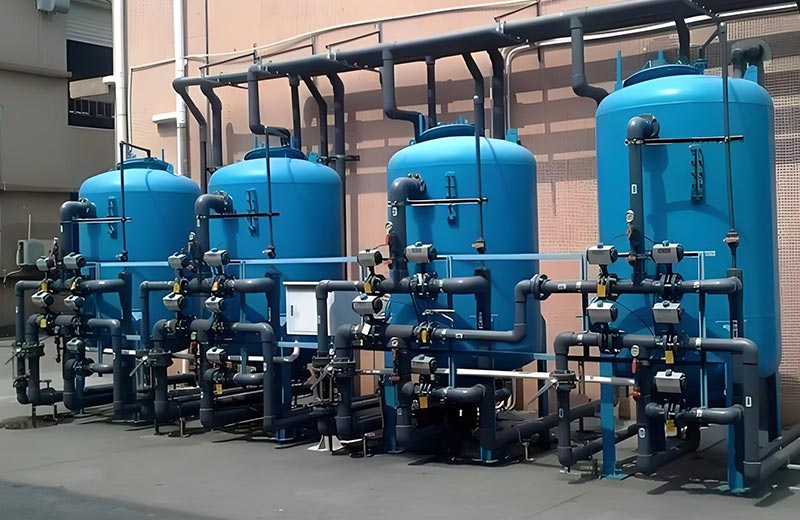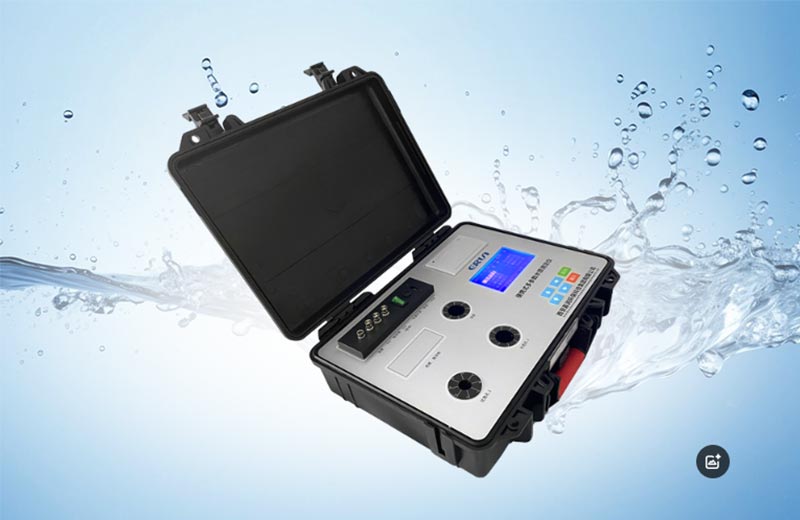Boiler water is tested for a variety of items, and the indicators that need attention when operating different types of boilers vary.Boiler water is not only used for evaporation into steam to conduct heat, but also directly involved in chemical reactions and physical processes within the boiler.The following section describes the items that can be tested for boiler water, common boiler types, and the specifics of these boiler tests.

Boiler water testing programmes usually include the following:
pH value: reflects the acidity and alkalinity of water, which is important for preventing boiler corrosion.
Hardness: mainly refers to the content of calcium and magnesium ions in the water, high hardness will lead to the formation of scale, affecting the efficiency of the boiler.
Dissolved Oxygen: Excessive dissolved oxygen content will accelerate the oxidative corrosion of boiler metal parts.
Chloride Ions: Excessive levels of chloride ions can exacerbate boiler corrosion.
Iron Ions: The presence of iron ions is usually a sign of boiler corrosion.
Copper Ions: The presence of copper ions may be due to corrosion of copper components inside the boiler.
Conductivity: Reflects the total amount of dissolved salts in water and indirectly indicates the purity of water.
Suspended matter: the amount of insoluble solid particles in the water, high levels of which affect the heat transfer efficiency of the boiler.
Phosphate: The presence of phosphate helps prevent the formation of scale in the boiler.
steam boiler
Main applications: Used to generate steam to drive mechanical equipment or heating systems.
Testing focus: pH, hardness, dissolved oxygen, conductivity, TDS, silica content, chloride ions, etc.
Special Requirements: Steam quality directly affects the downstream process, so there is strict control of impurities entrained in the steam.
hot water boiler
Main uses: to provide hot water for building heating or industrial processes.
Testing focus: pH, hardness, dissolved oxygen, conductivity, TDS, etc.
Special Requirements: Considering that hot water boilers are mostly used in the field of life, the requirements for their water quality are relatively low, but attention should still be paid to preventing scale formation and pipe corrosion.
Waste Heat Recovery Boiler
Main purpose: To heat water or generate steam by using waste heat generated during industrial production.
Inspection focus: In addition to conventional projects, special attention should be paid to the quality of incoming water to avoid harmful substances from entering the boiler system.
Special requirements: Due to the possible pollution of waste heat sources, water quality monitoring needs to be strengthened to ensure that there is no secondary pollution of the environment.
In addition to this some boiler water quality testing should be noted:
Power station boilers: Focus on pH, dissolved oxygen, chloride ions, silicates, iron ions, etc. to ensure steam quality and prevent corrosion.
Industrial boilers: In addition to the above indicators, attention should also be paid to hardness and conductivity to prevent scale formation and ensure heat exchange efficiency.
Fire-tube boilers: due to their structural characteristics, it is more important to pay attention to the detection of suspended solids to prevent clogging.
Water pipe boilers: Focus on dissolved oxygen and chloride ions, as these indicators have a greater impact on the corrosion of metal pipes.
Waste heat boilers: In addition to the usual indicators, the phosphate content needs to be monitored to assess the anti-scaling effect.

The above is our summary of boiler water can be tested items, common types of boilers and the specific indicators of these boiler testing,For different types of boilers, although their basic testing items are similar, there may be a focus on specific application scenarios.Erun environmental protection production of boiler water quality tester has portable, desktop, online various types, can meet the different applications in the use of boiler water quality testing indicators, for detailed testing programmes or prices can be directly contact customer service or call the phone.